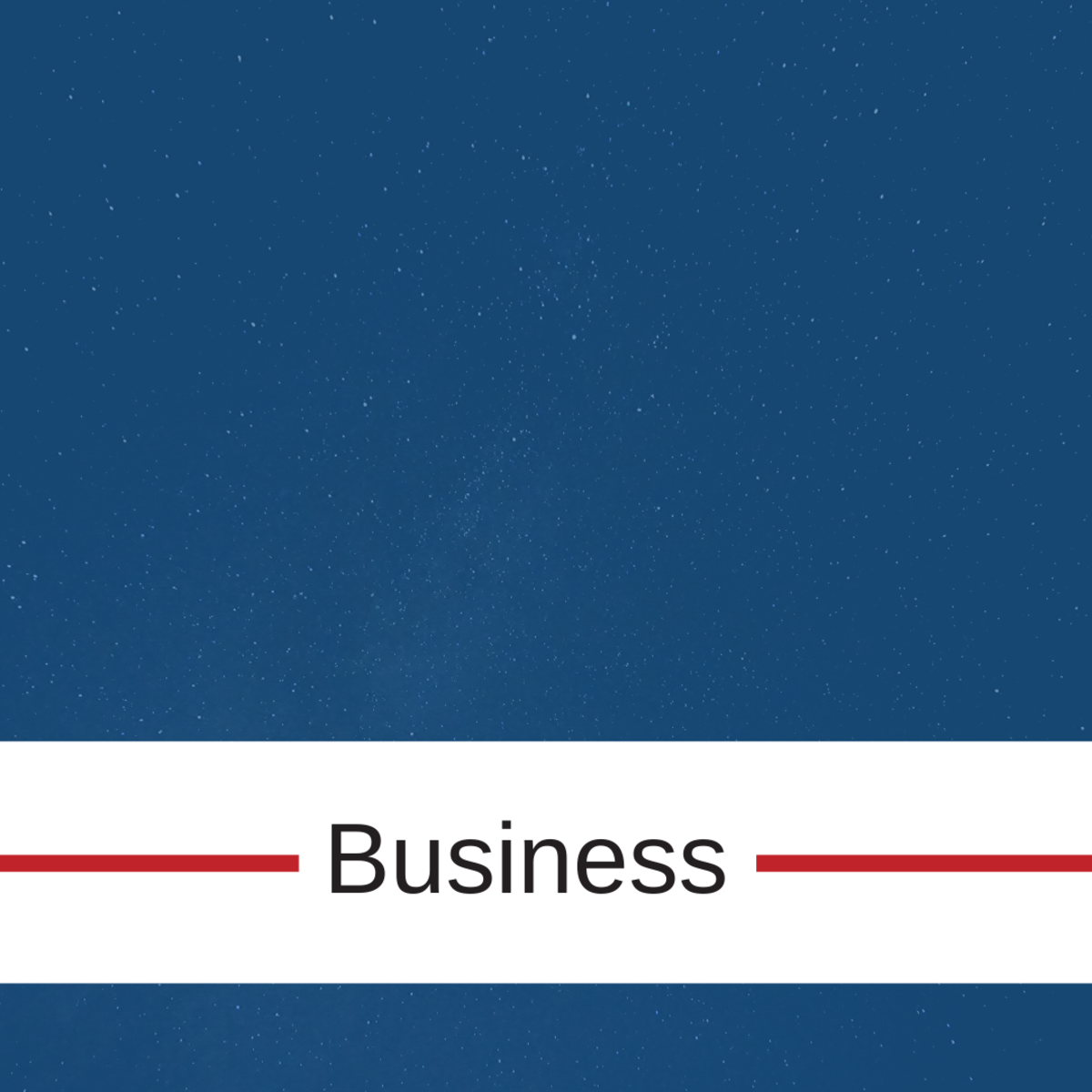Sales Executive
Sales Executive: A Comprehensive Career Guide
A Sales Executive is a vital player in a company's growth engine. Their primary focus is on generating revenue by identifying potential customers, developing relationships, closing deals, and managing key accounts. Think of them as the strategic spearhead of the sales effort, often handling larger, more complex, or high-value sales opportunities compared to entry-level sales roles.
Working as a Sales Executive can be dynamic and rewarding. You'll engage directly with diverse clients, understanding their needs and crafting solutions. The role often involves strategic thinking, negotiation, and the satisfaction of closing deals that significantly impact the company's bottom line. It demands resilience and drive, but success brings both financial rewards and professional accomplishment.
Introduction to Sales Executive Roles
What is a Sales Executive?
At its core, a Sales Executive drives business growth by selling products or services. They are responsible for the full sales cycle, from prospecting and lead qualification to negotiation and closing agreements. This role typically requires a deep understanding of the product or service being sold, the market landscape, and the specific needs of potential clients.
Sales Executives often work with significant revenue targets and are key figures in achieving a company's financial goals. They build and maintain strong relationships with important clients, acting as trusted advisors rather than just vendors. This consultative approach helps ensure long-term partnerships and repeat business.
This position is generally considered a mid-level to senior role within a sales organization. It builds upon foundational sales experience and requires a higher degree of autonomy, strategic planning, and sophisticated selling skills compared to more junior positions.
Where Do Sales Executives Work?
Sales Executives are found across nearly every industry that involves selling products or services, particularly in business-to-business (B2B) environments. Technology companies, including software (SaaS), hardware, and IT services, heavily rely on Sales Executives to secure deals with other businesses. The complexity and value of these offerings necessitate skilled negotiation and relationship management.
Other prominent sectors include pharmaceuticals and medical devices, manufacturing (selling industrial equipment or components), financial services (selling investment products, insurance, or banking services), and professional services (consulting, marketing agencies, legal services). Essentially, any field with high-value transactions or complex solutions requires dedicated Sales Executives.
The specific responsibilities might vary slightly by industry – for instance, a pharma Sales Executive needs clinical knowledge, while a tech Sales Executive needs to understand software integrations – but the core function of driving strategic sales remains consistent.
Sales Executive vs. Related Roles
It's helpful to distinguish the Sales Executive role from similar positions. An Account Manager
existing clients, ensuring satisfaction and identifying upsell or cross-sell opportunities.A Business Development Representative (BDR) or Sales Development Representative (SDR) typically concentrates on the top of the sales funnel. Their main tasks involve generating new leads through prospecting (cold calls, emails, social media) and qualifying those leads before handing them off to a Sales Executive or Account Executive to close the deal.
Key Responsibilities of a Sales Executive
Acquiring Clients and Managing Relationships
A core responsibility is identifying and pursuing new business opportunities. This involves researching potential clients (prospecting), understanding their business challenges, and initiating contact. Sales Executives need to be adept at building rapport quickly and establishing credibility.
Once contact is made, they nurture the relationship, presenting tailored solutions that address the client's specific needs. This often involves product demonstrations, detailed proposals, and ongoing communication. Strong negotiation skills are crucial for finalizing terms and closing the sale successfully.
Beyond closing the initial deal, effective Sales Executives focus on building long-term, strategic partnerships. This means maintaining regular contact, understanding the client's evolving needs, and ensuring they derive maximum value from the product or service, paving the way for future business.
These courses provide frameworks and tactics for developing business and honing sales techniques, crucial for client acquisition.
Managing the Sales Pipeline and Using CRM
Sales Executives manage a "pipeline" – a visual representation of potential deals at various stages of the sales process. This typically includes stages like Prospecting, Qualification, Needs Analysis, Proposal/Presentation, Negotiation, and Closed/Won or Closed/Lost. Effective pipeline management ensures a steady flow of potential revenue.
Customer Relationship Management (CRM) software is an indispensable tool. Platforms like Salesforce or HubSpot CRM allow Sales Executives to track all interactions with prospects and clients, manage tasks, schedule follow-ups, and store important information. This organization is vital for managing multiple opportunities simultaneously.
Using CRM data, Sales Executives can also forecast future sales more accurately. Analyzing pipeline velocity, deal sizes, and conversion rates helps them understand their performance and identify areas for improvement or potential roadblocks in their sales process.
Understanding sales planning models and effective sales management strategies is key to pipeline success.
This book offers practical advice on structuring sales processes.
Meeting Targets and Tracking Performance
Sales Executives typically work towards specific revenue targets or quotas, set on a monthly, quarterly, or annual basis. Achieving these targets is a primary measure of success and often directly impacts their compensation through commissions or bonuses.
Performance is tracked using various Key Performance Indicators (KPIs). Common KPIs include the number of deals closed, total revenue generated, average deal size, sales cycle length (time from initial contact to closing), conversion rates at different pipeline stages, and customer acquisition cost.
Regularly analyzing these metrics helps Sales Executives understand what's working and what isn't. This data-driven approach allows them to refine their strategies, focus their efforts more effectively, and proactively address any performance issues to ensure they meet or exceed their goals.
Collaborating Across Teams
Sales Executives rarely work in isolation. Effective collaboration with other departments is crucial for success. They often partner closely with the marketing team to understand lead generation campaigns, provide feedback on messaging, and align sales efforts with marketing initiatives.
Input from Sales Executives is invaluable for product development teams. They relay customer feedback, highlight market needs, and identify feature requests that can make the product more competitive. This ensures the company's offerings remain aligned with customer demands.
Coordination with finance and legal teams is necessary for negotiating contracts, pricing, and payment terms. They also work with customer support or success teams to ensure smooth onboarding for new clients and ongoing customer satisfaction, which is key for retention and future sales.
Analyzing the Market and Competitors
Staying informed about the industry landscape is critical. Sales Executives need to understand current market trends, emerging technologies, and economic factors that could impact their clients or their own company's position. This knowledge helps them anticipate client needs and tailor their approach.
Competitor analysis is another key aspect. Knowing who the main competitors are, understanding their strengths and weaknesses, their pricing strategies, and how they position their products allows Sales Executives to differentiate their own offerings effectively during sales conversations.
This market intelligence informs sales strategy, helping Executives identify untapped opportunities, counter competitive threats, and articulate a compelling value proposition that resonates with potential customers in the current market environment.
This course provides structured methods for analyzing the competitive landscape.
This book offers insights on differentiating your offering in a crowded market.
Sales Executive Career Path
Starting the Journey: Entry-Level Roles
Most Sales Executives don't start in that specific role. The journey typically begins in foundational sales positions where individuals learn the ropes, develop core selling skills, and prove their ability to generate results. Common entry points include Sales Development Representative (SDR) or Business Development Representative (BDR).
Other starting roles might be Inside Sales Representative (handling sales remotely via phone or email), Sales Associate, or Junior Account Manager. These positions provide exposure to prospecting, lead qualification, CRM usage, and the basics of the sales cycle, often with more direct supervision and coaching.
Success in these initial roles, demonstrated by consistently meeting targets and showing initiative, builds the necessary experience and credibility for advancement. It's a period of learning, resilience-building, and mastering fundamental sales techniques.
These courses offer guidance for those starting or considering a sales career and specific training for SDR roles.
Advancing to Sales Executive
Transitioning to a Sales Executive role typically requires several years of proven success in an entry-level or mid-level sales position. Key criteria include consistently meeting or exceeding sales quotas, demonstrating strong relationship-building skills with clients, and developing a deeper understanding of the industry and product.
Companies look for individuals who can manage the full sales cycle more autonomously, handle larger and more complex deals, and think strategically about their territory or accounts. Strong negotiation skills, presentation abilities, and business acumen become increasingly important.
The timeline for promotion varies significantly based on individual performance, company structure, and industry. Some high performers might advance within 2-3 years, while in other contexts, it might take 5 years or more. Demonstrating leadership potential and proactively seeking challenging assignments can accelerate this progression.
Beyond Sales Executive: Future Opportunities
A successful tenure as a Sales Executive opens doors to various leadership and strategic roles. A common path is promotion to Sales Manager, leading a team of sales professionals. Further advancement can lead to roles like Sales Director or Vice President (VP) of Sales, overseeing broader sales strategies and larger teams.
Alternatively, experienced Sales Executives might move into Strategic Account Management, focusing on the company's largest and most important clients, or shift into senior Business Development roles focused on forging major partnerships or entering new markets. Some leverage their experience and network to become entrepreneurs, starting their own businesses.
The skills developed – negotiation, strategic thinking, relationship management, market analysis – are also transferable to other fields, such as marketing leadership, consulting, or general management, offering diverse long-term career options.
This book focuses on the transition to sales leadership.
Industry Variations in Career Progression
While the general trajectory is similar, the pace and structure of career progression can differ across industries. In fast-growing sectors like technology (particularly SaaS), advancement opportunities might arise more quickly due to rapid company expansion and evolving market needs. Performance is often heavily weighted.
In more traditional or heavily regulated industries, such as manufacturing, pharmaceuticals, or finance, career paths might be more structured and formalized. Advancement may depend not only on performance but also on tenure, specific certifications, or completing internal development programs.
Understanding these industry nuances is important when planning a career path. Networking within your specific industry and seeking mentorship can provide valuable insights into typical progression timelines and the specific criteria valued for advancement in that field.
Formal Education Pathways
Relevant University Degrees
While a specific degree is not always mandatory to become a Sales Executive, certain fields of study provide a relevant foundation. Bachelor's degrees in Business Administration, Marketing, or Communications are common choices as their curricula often cover principles of commerce, persuasion, market analysis, and interpersonal skills.
However, many successful Sales Executives come from diverse academic backgrounds, including humanities, sciences, or engineering. What often matters more than the specific major is the development of critical thinking, problem-solving, communication abilities, and a strong work ethic during university.
Ultimately, practical experience, demonstrable sales skills, and a track record of achieving results tend to outweigh specific educational credentials in the hiring process for many sales roles, especially as one progresses beyond entry-level positions.
Advanced Degrees and Certifications
For those aspiring to senior sales leadership roles (e.g., Sales Director, VP of Sales), an advanced degree like a Master of Business Administration (MBA) can be beneficial. An MBA provides broader business acumen, strategic management skills, and valuable networking opportunities.
Specialized Master's programs in areas like Sales Management or Marketing may also offer focused expertise. Industry-specific certifications can enhance credibility and demonstrate specialized knowledge. For example, the Certified Sales Professional (CSP) designation offered by organizations like the National Association of Sales Professionals indicates a level of competence and adherence to ethical standards.
While not typically required for a Sales Executive role itself, these advanced credentials can be differentiators, particularly when competing for management positions or roles in highly competitive industries. Their value often lies in signaling commitment and providing deeper strategic understanding.
Research and Sales Methodologies
The field of sales is constantly evolving, influenced by research in psychology, economics, and communication. Understanding established sales methodologies can provide frameworks for approaching different sales situations effectively. These aren't rigid rules but rather structured approaches.
Well-known methodologies include SPIN Selling, which focuses on asking specific types of questions (Situation, Problem, Implication, Need-payoff) to uncover client needs. The Challenger Sale methodology emphasizes teaching clients something new and challenging their assumptions. Others include Solution Selling, Value Selling, and Consultative Selling.
Familiarity with these concepts, often gained through reading, training programs, or online courses, equips Sales Executives with a toolkit of strategies to adapt to various customer interactions and complex selling environments. Continuous learning about new research and evolving techniques is key.
These books are foundational texts on influential sales methodologies.
Online Learning and Skill Development
Essential Technical Proficiencies
Modern Sales Executives need to be proficient with various technologies. Mastery of CRM software (like Salesforce, HubSpot) is non-negotiable for managing leads, tracking activities, and forecasting sales. Proficiency in presentation software like Microsoft PowerPoint or Google Slides is essential for creating compelling sales pitches.
Basic data analysis skills, often using tools like Microsoft Excel or Google Sheets, are needed to interpret sales data, track performance against KPIs, and identify trends. Familiarity with sales intelligence platforms (e.g., LinkedIn Sales Navigator) can also provide a competitive edge in prospecting.
Online courses offer accessible and structured ways to acquire or sharpen these technical skills, from beginner tutorials to advanced techniques. Many platforms provide hands-on projects to practice using these tools effectively in a sales context.
These courses cover essential presentation and data visualization tools often used in sales.
These books focus on presenting data and information effectively.
Cultivating Crucial Soft Skills
While technical skills are important, soft skills often differentiate top-performing Sales Executives. Exceptional communication skills – both written and verbal – are paramount for building rapport, articulating value propositions, and handling objections. Active listening is crucial for truly understanding client needs.
Strong negotiation skills are vital for closing deals favorably. Emotional intelligence helps in understanding client perspectives and navigating complex interpersonal dynamics. Resilience is needed to handle rejection and persist through challenges, while time management and organizational skills are key to juggling multiple priorities.
Online courses focused on professional development can significantly enhance these soft skills. They offer frameworks, practice exercises, and expert insights into areas like negotiation tactics, impactful communication, leadership potential, and effective business writing.
Developing strong soft skills is an ongoing process. These courses cover essential areas like listening, public speaking, and effective writing.
These books provide valuable insights into presentation techniques and influential communication.
Building Experience Without a Formal Role
For career changers or those lacking direct sales experience, gaining practical exposure can seem challenging, but it's possible. Volunteering to handle sales or fundraising tasks for a non-profit organization can provide real-world experience in prospecting, pitching, and closing.
Participating in university sales competitions or business plan competitions allows you to practice pitching ideas and receiving feedback. Developing a personal project, such as creating a comprehensive mock sales plan for a product or service you're passionate about, can demonstrate initiative and strategic thinking to potential employers.
Freelancing platforms may offer opportunities for short-term sales or lead generation projects. Even roles in customer service or marketing can help develop transferable skills like communication, problem-solving, and understanding customer needs. Highlighting these experiences effectively is key.
This course guides you through creating a pitch canvas, a useful exercise for developing and presenting business ideas.
Integrating Online Learning Effectively
Online courses are powerful tools for both aspiring and current Sales Executives. For career pivoters, they provide structured learning paths to acquire foundational knowledge and skills. For existing professionals, they offer opportunities to specialize, upskill in new technologies, or refresh core competencies.
Platforms like OpenCourser aggregate thousands of courses, allowing learners to browse options across various business and sales topics. Features like saving courses to a list using the "Save to List" button help organize learning goals. Simply completing courses isn't enough; active application is crucial.
Seek opportunities to apply what you learn, whether through role-playing exercises, implementing new techniques in your current role (if applicable), or working on side projects. Consult resources like the OpenCourser Learner's Guide for tips on maximizing the value of online education and integrating it effectively into your career development plan.
Sales Executive Compensation and Incentives
Understanding Salary Structures
Compensation for Sales Executives typically consists of a base salary plus variable pay, often in the form of commissions. The combination is referred to as On-Target Earnings (OTE), representing the total potential earnings if all sales targets are met.
Commission structures vary widely. They might be a straight percentage of the revenue from each sale, a tiered system where the percentage increases as higher targets are reached, or bonuses paid for achieving specific milestones or closing certain types of deals.
The split between base salary and variable commission also differs. Some roles might have a higher base and lower commission potential, offering more stability, while others might have a lower base but higher commission rates ("higher leverage"), offering greater earning potential for top performers.
Performance Bonuses and Equity
Beyond standard commissions, many companies offer additional performance-based bonuses. These might be tied to exceeding quarterly or annual quotas, winning large strategic accounts, or achieving specific team or company goals. These bonuses can significantly increase total compensation.
In certain industries, particularly technology startups and established public tech companies, equity (stock options or restricted stock units - RSUs) can be part of the compensation package. This gives Sales Executives a stake in the company's long-term success, aligning their interests with overall company growth.
Profit-sharing plans, where employees receive a portion of the company's profits, are another form of incentive used by some organizations. Understanding the full potential compensation package, including all variable components, is crucial when evaluating job offers.
Factors Influencing Pay
Sales Executive compensation is influenced by numerous factors. Industry plays a significant role; for example, enterprise software or medical device sales roles often command higher OTEs than roles in less technical or lower-margin industries. Company size and stage (startup vs. established corporation) also impact pay structures.
Geographic location is a major factor due to variations in cost of living and market demand for sales talent. Experience level and track record are critical – proven top performers can negotiate higher base salaries and more favorable commission structures. The complexity of the product/service sold and the typical deal size also influence pay.
Researching typical salary ranges for similar roles in your specific industry and location is important. Resources like the U.S. Bureau of Labor Statistics Occupational Employment and Wage Statistics (OES) program can provide benchmark data, although sales roles often have wide variations due to the commission component.
Beyond the Paycheck: Non-Monetary Perks
While financial compensation is key, Sales Executive roles often come with attractive non-monetary benefits. Depending on the role and industry, perks might include a company car or car allowance, especially for field sales positions requiring frequent travel.
Expense accounts for client entertainment and travel are common. Opportunities for domestic or even international travel can be part of the job, attending industry conferences or meeting clients. Many companies invest heavily in ongoing sales training and professional development for their teams.
Other benefits can include access to exclusive networking events, President's Club trips (rewarding top performers with luxury vacations), flexible work arrangements, and comprehensive health and retirement benefits. These perks contribute to the overall attractiveness of the role.
Technological Impact on Sales Executives
AI and Sales Forecasting
Artificial Intelligence (AI) is increasingly impacting sales. AI-powered tools can analyze vast amounts of historical data and market signals to generate more accurate sales forecasts. They can also help identify leads most likely to convert by analyzing customer behavior and firmographic data.
AI can assist Sales Executives by suggesting next best actions for specific deals, personalizing outreach messaging at scale, and providing insights into customer sentiment through analyzing communications. This allows salespeople to focus their efforts more strategically.
However, AI forecasting is not infallible and relies heavily on data quality. Human judgment and relationship-building skills remain crucial, especially for complex B2B sales. AI should be viewed as a tool to augment, not replace, the strategic thinking of a Sales Executive.
This course explores how Generative AI can be applied specifically to sales proposal and presentation creation.
Automation in Sales Processes
Sales automation tools handle repetitive, time-consuming tasks, freeing up Sales Executives to focus on higher-value activities like building relationships and closing deals. Automation can be applied to lead generation (e.g., web scraping, data enrichment), email outreach sequences, and scheduling meetings.
CRM systems often incorporate automation features for logging activities, sending follow-up reminders, and updating deal stages. Chatbots can handle initial inquiries on websites, qualifying leads before they reach a salesperson. These tools increase efficiency and ensure consistency in follow-up.
While automation streamlines workflows, over-reliance can lead to impersonal interactions. The key is to use automation thoughtfully to enhance efficiency without sacrificing the personalized touch that is often critical in building trust and closing complex sales.
Understanding online lead generation and prospecting techniques is essential in the modern sales environment.
These books discuss systematic approaches to prospecting and revenue generation, often involving automation concepts.
Data Ethics in Sales
The increasing use of data and technology in sales raises important ethical considerations. Sales Executives must be mindful of data privacy regulations like GDPR (General Data Protection Regulation) in Europe or CCPA (California Consumer Privacy Act) when collecting and using customer information.
Transparency is key. Misrepresenting products or services, using manipulative tactics based on data insights, or sharing confidential client information inappropriately can damage trust and harm the company's reputation. Ethical selling focuses on providing genuine value and building long-term relationships based on integrity.
Companies should have clear ethical guidelines and provide training on responsible data use. Sales Executives have a personal responsibility to act ethically, ensuring their pursuit of targets doesn't compromise their integrity or exploit customer vulnerabilities.
Adapting and Upskilling
The rapid pace of technological change means that continuous learning is essential for Sales Executives. Staying current with new CRM features, sales automation tools, AI applications, and digital communication platforms is necessary to remain competitive and effective.
Upskilling involves not just learning how to use new tools, but also understanding how technology changes buyer behavior and adapting sales strategies accordingly. For example, understanding how buyers research solutions online informs how salespeople should engage digitally.
Embracing lifelong learning, whether through formal training, online courses, industry publications, or peer networks, is crucial. Adaptability and a willingness to learn new skills and technologies are key attributes for long-term success in the evolving sales landscape.
Global Opportunities for Sales Executives
High-Demand International Markets
Globalization and digital communication have expanded opportunities for Sales Executives to work with clients and markets around the world. Certain regions and industries consistently show high demand for skilled sales professionals, often driven by technological advancements or economic growth.
Emerging economies and rapidly growing tech hubs in areas like Asia-Pacific, parts of Europe, and Latin America can offer exciting opportunities. Industries with inherently global reach, such as enterprise software, logistics, and international finance, frequently require sales teams with global capabilities.
Researching specific market trends and identifying companies with a strong international presence can uncover roles focused on global or regional sales territories, offering unique challenges and rewards for those interested in working across borders.
Navigating Cultural Differences
Selling effectively across cultures requires more than just language translation. Sales Executives working internationally must develop strong cross-cultural communication skills and awareness. Communication styles, negotiation tactics, decision-making processes, and relationship-building norms can vary significantly between countries.
Understanding these cultural nuances is crucial for building trust and avoiding misunderstandings. What might be considered direct and efficient in one culture could be perceived as abrupt or rude in another. Patience, empathy, and a willingness to adapt one's approach are essential qualities.
Investing time in learning about the business etiquette and cultural values of target markets is vital. This cultural intelligence can be a significant differentiator when competing for international business.
Language and Localization
While English is often the common language of international business, proficiency in the local language of a target market can provide a significant advantage. It facilitates deeper connections with clients, allows for a better understanding of local needs, and demonstrates respect for the client's culture.
Beyond language, localization involves adapting sales materials, presentations, and even product features to suit the specific context of a market. This might include adjusting messaging, case studies, pricing, or ensuring compliance with local regulations.
For roles focused on specific non-English-speaking regions, language proficiency may be a requirement. Even when not strictly required, demonstrating an effort to learn basic phrases or understand key cultural terms can go a long way in building rapport.
Managing Remote and Hybrid Sales
The rise of remote and hybrid work models has reshaped international sales. Sales Executives increasingly rely on video conferencing, collaborative online tools, and digital communication channels to connect with clients and colleagues across different time zones.
Managing relationships remotely requires strong organizational skills, proactive communication, and the ability to build trust without frequent face-to-face interaction. Mastering virtual presentation skills and leveraging technology effectively are critical for success in this environment.
For sales leaders managing international teams, fostering team cohesion, ensuring clear communication, and adapting management styles for a dispersed workforce present unique challenges and require specific strategies for virtual collaboration and performance monitoring.
Frequently Asked Questions
What personality traits predict success?
While there's no single "sales personality," certain traits are commonly associated with success. Resilience is key for handling rejection and navigating challenges. A strong drive or ambition fuels the pursuit of targets. Empathy helps in understanding client needs and building relationships.
Excellent communication and listening skills are fundamental. Organization and time management are crucial for managing a pipeline effectively. Curiosity drives continuous learning about clients, products, and the market. Coachability – the willingness to learn and adapt – is also highly valued.
It's important to note that successful salespeople possess diverse personality mixes. Strengths in different areas can lead to success, especially as sales becomes more specialized and reliant on strategic thinking alongside interpersonal skills.
Can introverts thrive as Sales Executives?
Absolutely. The stereotype of the overly extroverted salesperson is outdated. While extroverts might excel at initiating conversations, introverts often possess strengths highly valuable in modern sales, particularly in complex B2B environments.
Introverts tend to be excellent listeners, allowing them to deeply understand client needs. They often excel at preparation, research, and thoughtful strategic planning. Their tendency towards deep focus can be advantageous when analyzing complex deals or crafting detailed proposals.
Success in sales today often hinges more on consultative skills, problem-solving, and building trust than on sheer outgoingness. Introverts who leverage their natural strengths in listening, preparation, and thoughtful communication can be exceptionally effective Sales Executives.
Understanding the psychological aspects of selling can be beneficial for any personality type.
How recession-proof is this career?
Sales roles are fundamentally tied to revenue generation, making them essential for business survival, even during economic downturns. Companies always need to sell their products or services. This provides a degree of job security compared to some other functions that might be seen as overhead costs.
However, the role is not entirely immune to economic fluctuations. During recessions, client budgets may tighten, making sales cycles longer and deals harder to close. Performance-based compensation (commissions) can decrease if targets become harder to meet. Some industries are also more cyclical than others.
Top-performing Sales Executives who consistently deliver results are generally in high demand regardless of the economic climate. Adaptability and the ability to demonstrate value clearly become even more critical during challenging times. Insights from resources like the Harvard Business Review can highlight how sales strategies adapt to economic shifts.
Transitioning from technical roles to sales leadership?
Transitioning from a technical background (e.g., engineering, IT) to a Sales Executive or sales leadership role is a common and often successful path. Deep technical or product knowledge provides significant credibility with clients, especially when selling complex solutions.
The main challenge often lies in developing commercial acumen and sharpening sales-specific skills like negotiation, relationship management, and strategic account planning. Focusing on communication skills – translating technical features into business benefits – is crucial.
Seeking mentorship from experienced sales professionals, taking targeted sales training or online courses, and gaining practical experience (perhaps initially in a Sales Engineer or technical presales role) can facilitate a smoother transition. Highlighting problem-solving abilities and analytical skills developed in technical roles is also beneficial.
Handling ethical dilemmas in aggressive targets?
Sales environments can be high-pressure, and aggressive targets sometimes create ethical dilemmas. It's crucial to prioritize long-term relationships and personal integrity over short-term gains achieved through questionable tactics. Misleading customers or over-promising capabilities ultimately damages trust and reputation.
Familiarize yourself thoroughly with your company's code of conduct and ethical guidelines. When faced with a dilemma, consult your manager, mentor, or ethics department if available. Focus on consultative selling – genuinely understanding client needs and offering solutions that provide real value.
Building a reputation for honesty and reliability is a valuable asset in a sales career. Ethical behavior fosters customer loyalty and sustainable success, which is ultimately more rewarding than hitting a single target through dubious means.
Foundational principles of effectiveness often touch upon integrity and principled action.
Future-proofing against AI displacement?
While AI and automation are changing sales, they are unlikely to fully displace skilled Sales Executives, especially in complex B2B sales. AI excels at data analysis, process automation, and initial lead qualification, but struggles with tasks requiring deep empathy, nuanced relationship building, complex negotiation, and creative strategic thinking.
To future-proof their careers, Sales Executives should focus on honing these uniquely human skills. Develop expertise in consultative selling, strategic account management, and building long-term partnerships based on trust. Become adept at using AI tools as assistants to enhance productivity, rather than viewing them as replacements.
Continuous learning and adaptability are key. Staying informed about how technology is evolving and proactively developing skills that complement AI capabilities will ensure Sales Executives remain valuable assets in the future sales landscape.
The career of a Sales Executive is demanding, requiring resilience, strategic thinking, and exceptional interpersonal skills. However, it offers significant rewards, both financially and professionally, with ample opportunities for growth and development across diverse industries. Success hinges on a commitment to understanding client needs, delivering value, continuous learning, and adapting to an ever-evolving market landscape. Exploring resources and courses on platforms like OpenCourser can provide the knowledge and skills needed to embark on or advance within this dynamic field.




















